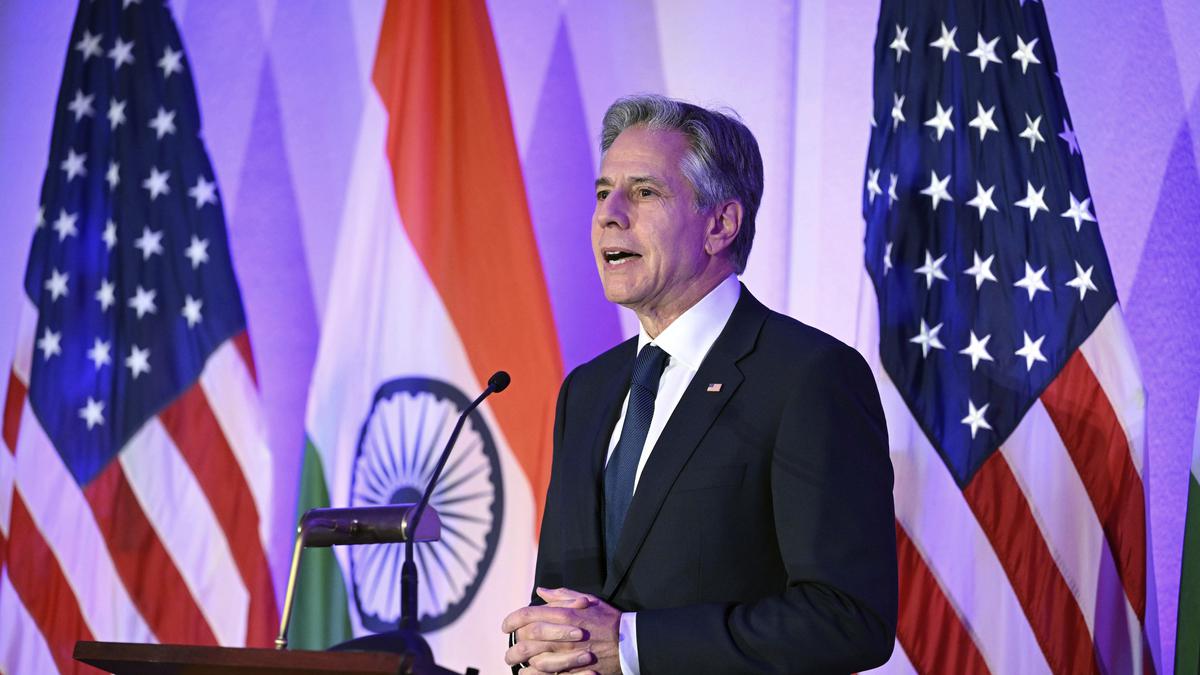
Introduction
In a significant development, U.S. Secretary of State Antony Blinken has emphasized the importance of economic ties between India and the United States in their strategic partnership. With Prime Minister Narendra Modi being invited for an official state visit by President Joe Biden and First Lady Jill Biden, the stage is set for strengthening bilateral relations and cooperation between the two nations. This article delves into the significance of economic cooperation in the India-U.S. partnership, highlighting the shared vision for innovation, future growth, and shaping global norms.
1. Historical Context and Strengthening Bonds
The Indo-U.S. relationship has evolved over time, progressing from a strategic dialogue to a comprehensive global partnership. With shared democratic values, a commitment to the rule of law, and a vibrant entrepreneurial spirit, both nations have witnessed steady growth in their bilateral ties. Economic collaboration has been a key driver, leading to the establishment of close trade and investment relations.
2. Economic Ties as the Pillar of Strategic Partnership
At the heart of the India-U.S. strategic partnership lies a robust economic foundation. Secretary Blinken’s statement reaffirms the shared belief that economic cooperation is a vital component in shaping the future and promoting mutual prosperity. The two countries recognize the potential for collaboration in various sectors, including technology, defense, healthcare, energy, and infrastructure.
3. Shaping Innovations of the Future
India and the United States are at the forefront of innovation, research, and development. Both nations have vibrant startup ecosystems and technological prowess. By fostering collaboration in emerging fields such as artificial intelligence, clean energy, biotechnology, and advanced manufacturing, India and the U.S. can collectively drive global progress. Through joint ventures, research partnerships, and knowledge sharing, the two countries can shape innovations that address critical challenges and create sustainable solutions.
4. Norms Governing Future Growth
As global powers, India and the United States play a pivotal role in shaping norms and regulations that govern various aspects of international relations. By working together, they can develop frameworks that promote free and fair trade, protect intellectual property rights, ensure cybersecurity, and foster a conducive environment for business growth. These shared norms will not only benefit both countries but also contribute to global stability and prosperity.
5. Strengthening Bilateral Trade and Investment
Bilateral trade and investment between India and the United States have witnessed substantial growth in recent years. The two nations have made efforts to address trade imbalances, promote a level playing field, and explore new avenues for cooperation. Through enhanced trade agreements, removal of barriers, and increased market access, India and the U.S. can unlock the full potential of their economic partnership.
6. India-U.S. Strategic Dialogue
Regular strategic dialogues between India and the United States provide a platform for high-level discussions on a wide range of issues. These dialogues cover various dimensions, including political, economic, and security cooperation. The forthcoming state visit of Prime Minister Narendra Modi will further strengthen this dialogue and create opportunities for meaningful collaboration on regional and global challenges.

7. Conclusion
In conclusion, Secretary of State Antony Blinken’s emphasis on economic ties as the foundation of the India-U.S. strategic partnership underscores the significance of bilateral cooperation. The invitation extended to Prime Minister Narendra Modi for an official state visit reflects the commitment to further deepen the ties between the two nations. By leveraging their complementary strengths, fostering innovation, and shaping global norms, India and the United States









